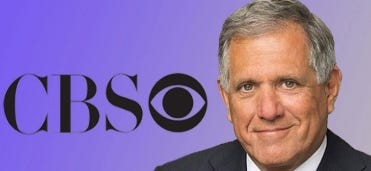Three people
... and how they inspired this project
ELIZABETH KOLBERT is a Pulitzer-Prize winning author and a staff writer for The New Yorker. During an interview last year on the Longform podcast, Elizabeth was asked if, when she sits down to write, she thinks her stories will make any difference. Does she believe her stories will change anything? Here’s part of her answer:
"I think that’s what motivates most journalists—this information is going to somehow make a difference. On the other hand, I have dispensed with a lot of that."
When I first heard this, I was stunned… and a bit depressed. If a staff writer for The New Yorker thinks her work doesn’t make a difference anymore, then what does that mean for the rest of us schleppers who labor in journalism’s far more obscure and less influential vineyards? What difference can we possibly make? (Masha Gessen, who also writes for The New Yorker, has expressed similar frustrations. As have many other journalists I know.)
Programming note: I’m interviewing Elizabeth later this month. Details soon.
DANIEL KAHNEMAN is a psychologist and the winner of the 2002 Nobel Prize in Economics. His research undermined one of the central assumptions of neo-classical economics: People are rational. It turns out that’s not entirely true: Instead of gathering and assessing facts to develop a conclusion, we often gather facts to support our pre-existing ideas and worldview. (His work extends what we know about confirmation bias.) As Kahneman told Krista Tippett: “The reason [people] don’t change their mind is that facts don’t matter, or they matter much less than people think.”
What does that mean for journalists, whose job is to report the facts? And if Kahneman is right, then what exactly are we doing when we sit down to read The New York Times or The Washington Post or [insert name of your favorite newspaper here]? What are we supposed to do with all that information?
LES MOONVES is the former chairman of CBS. During a meeting of CBS stockholders in early 2016, Moonves discussed the impact of Donald Trump’s presidential campaign on CBS profits:
… Who would have thought that this circus would come to town? It may not be good for America, but it’s damn good for CBS. [Moonves & crowd laugh] The money is rolling in. This is fun… It’s amazing…. They’re throwing bombs at each other… I’ve never seen anything like this, and this is going to be a very good year for us. [More laughter] Sorry, it’s a terrible thing to say, but bring it on, Donald. Go ahead. Keep going.”
(The audio is worth a listen, if only to hear Moonves & CBS stockholders yukking it up. You can listen HERE.)
Moonves cynicism is breathtaking. So is his delight with the TV show he’s producing that “may not be good for America.” It reminds me of what “Donald Trump” wrote in The Onion in 2015, just a month after entering the presidential race:
“Admit it: You people want to see just how far this goes, don’t you? … Whatever your wildest expectation is, I promise you I will surpass it. You’re not going to pass up an opportunity to see that, are you? … I have the power to make the next 16 months one of the most incredible times in our nation’s history, and not a single one of you can say you’re not at least a little bit curious to see how this wild ride shakes out….”
Moonves and Trump both know we’re addicted to Story — to finding out what crazy sh*t happens next. And they’re exploiting our addiction with potentially catastrophic results.
Summing up:
Award-winning magazine journalist no longer believes her reporting and her stories make much of a difference.
Nobel laureate concludes that facts don’t matter as much as we think.
Big-shot media mogul & his company’s stockholders laugh as they help produce, direct, and enable a political drama they know is screwing up our democracy.
We have a serious problem here, right? Or is it just me?




